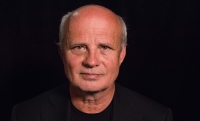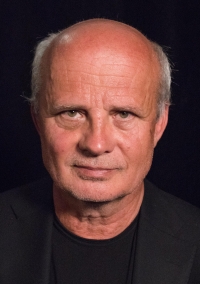Losing is the greatest delight right after winning
Michal Horáček was born on July 23rd of 1952 in Praha as a son of Vladimír Horáček, a translator and a dramaturge, and Eva Horáčková née Heyrovská, a psychologist. Since his childhood, he was encouraged to pursue his interest in visual arts and literature, after graduating fro gymnasium in 1970 he started to study journalism at the Charles University´s Faculty of Social Sciences and Journalism. In the spring of 1974, after forging a recommendation by the Socialistický svaz mládeže (Socialist Union of Youth), he was allowed to travel abroad and went to the United States of America. Upon his return, he was arrested, taken into custody and expelled from the university, but in the end, he was conditionally discharged. He made his living as a dishwasher and worked as a lifeguard, after that, he ended up in META, a Disabled Person Union´s manufacturing company. At the same time, he was active amongst Praha´s gambling and horse betting community; and he managed to publish series of articles on horse racing and horse breeding in foreign journals, despite the fact that at first he was not allowed to publish in Czechoslovakia. After he had won a journalism prize abroad in 1982, he went on a one-year scholarship to the United States in 1984, studying at the Macalester College´s World Press Institute. After he came back from the United States he wrote for Mladý Svět (The Young World) Magazine and he also began his collaboration with Petr Hapka as a lyricist, with whom he later wrote several musical records. In 1989, he founded the Most (The Bridge) Initiative) with Michael Kocáb, that mediated the dialogue between the high ranking Communist party members and the opposition in the days of November of 1989. In 1990, he founded the Fortuna betting agency. In 2018, he was a candidate during the presidential elections in the Czech Republic.

